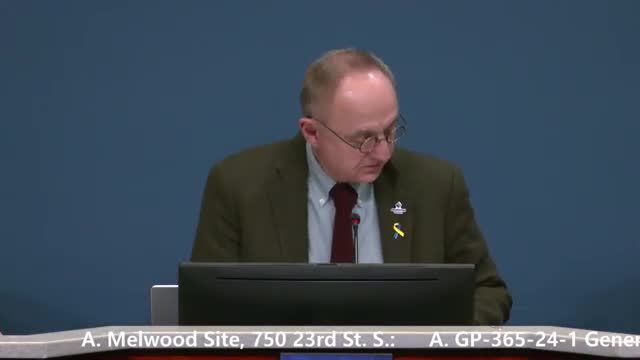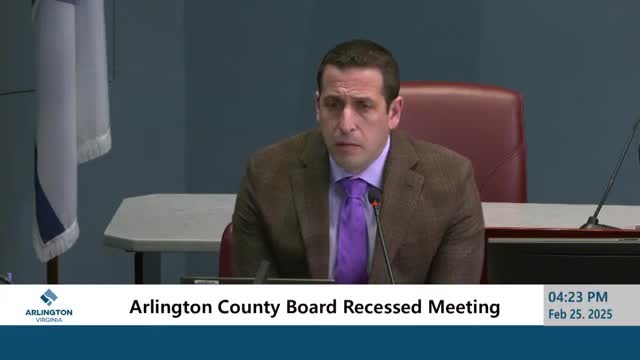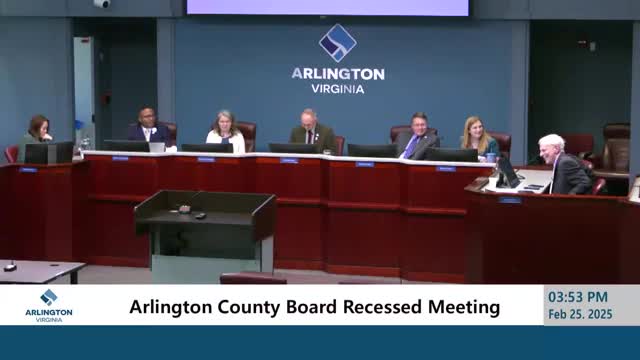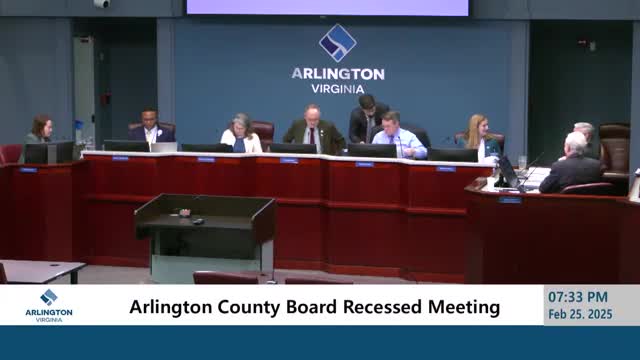Article not found
This article is no longer available. But don't worry—we've gathered other articles that discuss the same topic.

Board approves Barcroft land‑use changes, first committed‑affordable building and AHIF loan reallocation

Climate Policy Office presents 2025–26 work plan emphasizing household action, electrification and a coordinated county response

Arlington Board charges staff to study limits on impervious surfaces in low-density neighborhoods

County Board approves advisory appointments, adopts revised Park and Recreation Commission charter

